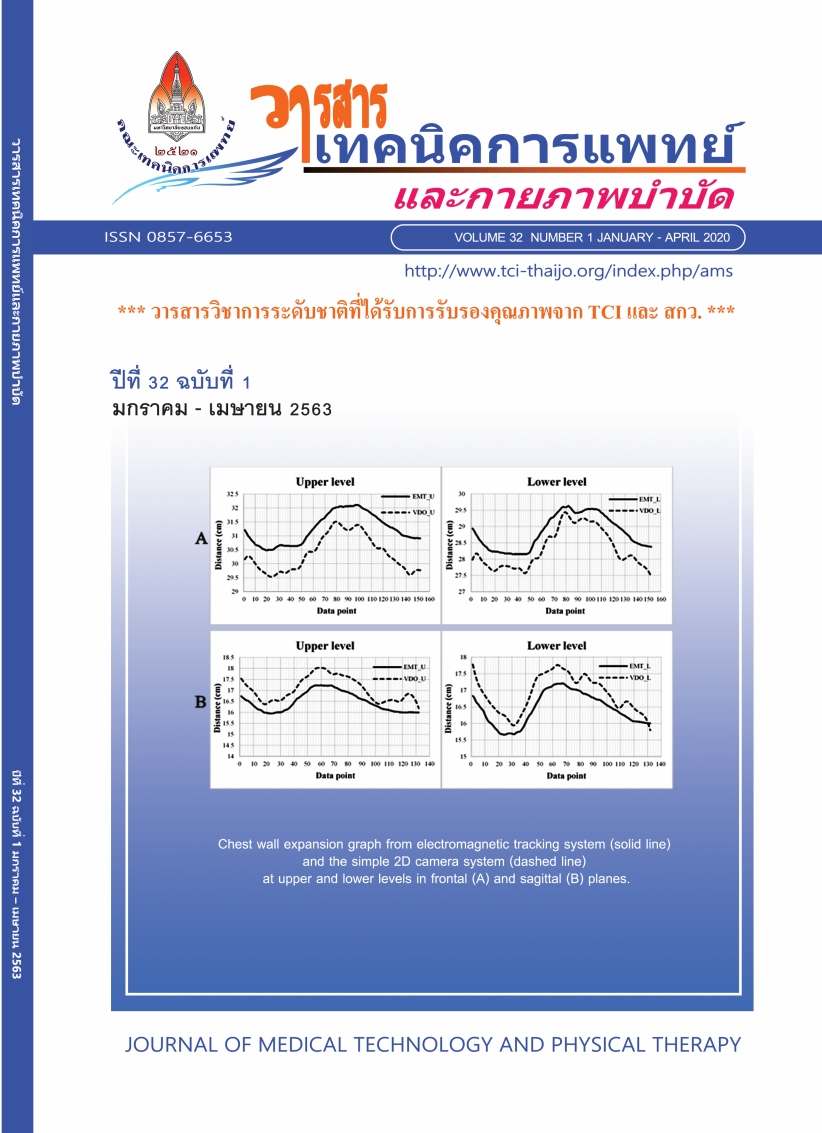Correlation between chest wall expansion and strength in typically developing children
Main Article Content
Abstract
Respiratory problems in children could hinder motor competency. Early detection of respiratory problems is important. The simple 2D camera system (2DCS) can be used to measure chest wall expansion representing respiratory function. However, this system needs to be validated prior to data collection. Evidences also suggest chest wall expansion could be potentially used to represent muscle strength. However, the correlation between chest wall expansion and muscle strength has not been well established. Therefore, this study aimed to determine the concurrent validity of the 2DCS using the electromagnetic tracking system (EMT) as a reference standard for measuring chest wall expansion, and to investigate the correlation between chest wall expansion and strength in typically developing children. Forty-seven children (age 10.9±1.11 years) attending primary schools were recruited. The 2DCS and the EMT were used to simultaneously measure chest wall expansion. These data were used to determine concurrent validity of the 2DCS. A hand-held dynamometer was used to measure grip strength that represents upper limb strength, while strength subtest of Bruininks-Oseretsky Test of Motor Proficiency second edition (BOT-2) was used to evaluate overall strength. These strength data were further used to determine the correlation between chest wall expansion and strength. Results demonstrated good to excellent agreements between two instruments (ICC2,3 = 0.80-0.94) indicating concurrent validity of the 2DCS. Additionally, significant positive correlations (p<0.05) were found between chest wall expansion and strength. Validity result suggests that the 2DCS can be used to measure chest wall expansion. Correlation between chest wall expansion and strength indicates that we can used chest wall expansion to partially estimate the strength in typically developing children. On the other hands, strength screening could be used identify children who might have a respiratory problem.


